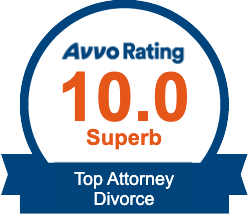As an Illinois employer, there are many pitfalls to avoid during the hiring procedure while looking for the best candidate. One portion of the process that has quite a bit of opportunity to inadvertently create violations of law is during the interview of the applicant. There are obvious topics that are not allowed to be discussed during an interview, such as race and color, but there are other subject areas that are off limits but could unintentionally be asked about if you are not aware of them.
A few of the known subject areas to avoid are addressed by the Illinois Human Rights Act (775 ILCS 5/1-101 et seq.). Under this Act, a potential employer cannot discriminate based upon race, color, religion, national origin, ancestry, age, sex marital status, order of protection status, disability, military status, sexual orientation, unfavorable discharger from military service (except dishonorable discharge), pregnancy, or citizenship status.
A lesser known requirement under the Illinois Human Rights Act (775 ILCS 5/2-101 et seq.) prohibits employers from asking on an application form or in a job interview about an applicant’s criminal history regarding arrests that did not lead to conviction, or convictions that have been dismissed, sealed, or expunged. Related to this, under the Job Opportunities for Qualified Applicants Act (820 ILCS 75/1 et seq.), a business with 15 or more employees is prohibited from inquiring into or considering any criminal history and records in the initial application process (with limited exceptions). Employers must wait to inquire about criminal history after they have determined the applicant is qualified for the position and has been selected for an interview, or if there will be no interview, the employer has made a conditional offer of employment to the job-seeker. An employer is allowed to notify possible applicants that certain offenses will disqualify the applicant for a particular position because of federal or state law, or the employer’s policy under the Job Opportunities for Qualified Applicants Act.
Additional restrictions, addressing legalized cannabis and social media accounts, are set forth under the Illinois Right to Privacy in the Workplace Act (820 ILCS 55/1 et seq.). An employer cannot refuse to hire an individual for their use of lawful products (including cannabis after January 1, 2020) used off premises during non-working hours. In addition under the Act, an employer cannot request from a job-seeker for them to provide their username, password, or other forms of authentication to gain access to personal online accounts, require applicant to access accounts in presence of employer, or request applicant to invite employer to join a group allowing employer access to online account of applicant. One additional subject matter addressed by the Act is that it restricts an employer from requesting information about a prospective employee’s previously filed claims under the Workers’ Compensation Act or Workers’ Occupational Diseases Act.
Under a very recent amendment to the Illinois Equal Pay Act (820 ILCS 112/10 et seq.), employers no longer are allowed to ask a job applicant or their previous employers about their salary history. This amendment does not restrict an employer from discussing and negotiating potential salary with a job-seeker, but only asking about prior history. The intent of this is to eliminate the wage gap between men and women doing the same job.
As with most laws there are exceptions to each of the above, for instance under the Illinois Right to Privacy in the Workplace Act (820 ILCS 55/1 et seq.), a non-profit organization that discourages the use of cannabis can restrict an employee from using cannabis while off premises during non-working hours. A good rule of thumb is to only ask questions that directly relate to the position the candidate is applying for and the skills necessary for that position. To avoid running afoul of the law, it is advisable prior to the interview to draft the questions you intend to ask and ensure they do not violate any of the applicable statutes (or are allowed under an exception), hopefully you’ll find the perfect candidate!







